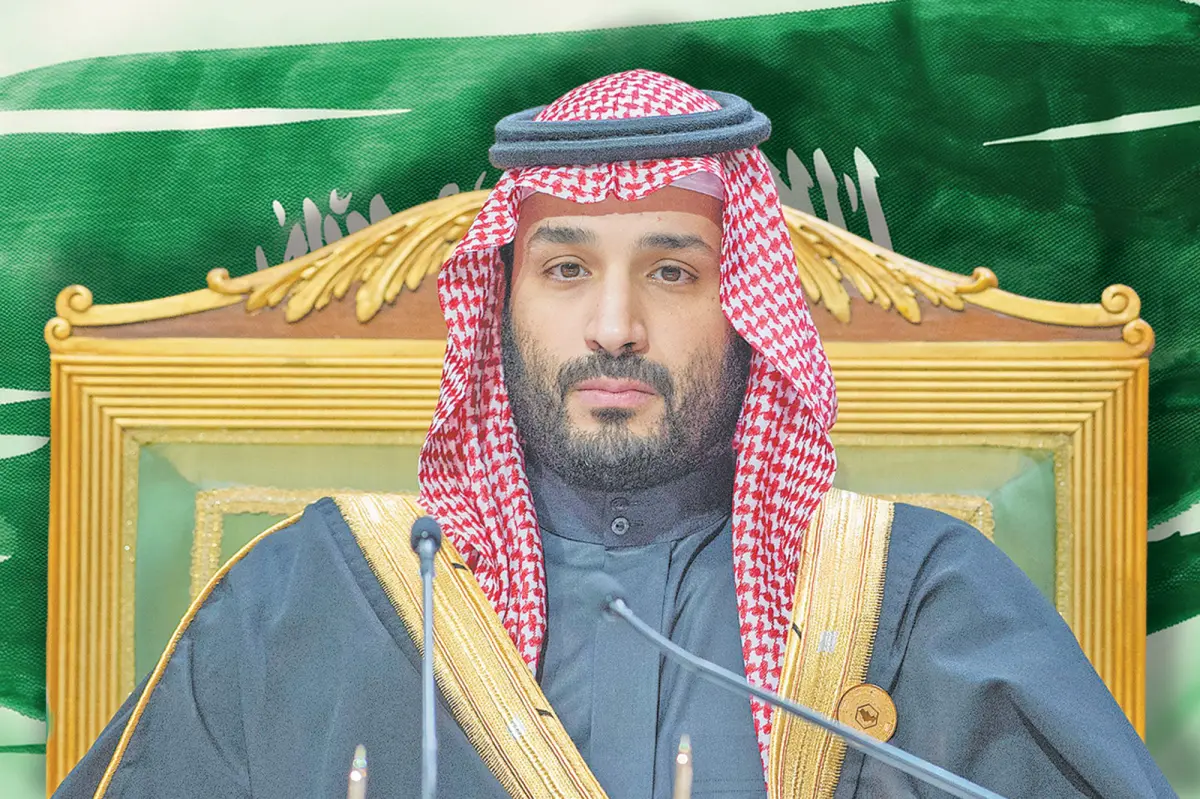By Eric Spitznagel
If you want to understand the new Saudi Arabia, don’t start with oil. Start with a video game.
The 39-year-old crown prince and prime minister of Saudi Arabia, Mohammed bin Salman — better known as MBS — grew up obsessed with video games, and he continues to play every morning, despite his heavy workload and five young children. His favorite game, Final Fantasy XVI, features a young heir to the throne who must retrieve a stolen crystal and discover he is the “True King.”
“Videogames squeeze the brain to think,” the prince told veteran journalist Karen Elliott House, according to her new book, “The Man Who Would Be King: Mohammed bin Salman and the Transformation of Saudi Arabia” (Harper), out July 8.
In less than a decade, MBS has transformed the country with breakneck speed and no small measure of brute force. “Today’s Saudi Arabia is literally unrecognizable from that of 2016,” House writes, noting that as of a few years ago the “ubiquitous black-bearded religious police, who stalked the streets enforcing public piety at the expense of personal privacy, are gone from view.” In their place are boxing matches, theme parks and music festivals.
It’s all the result of a generational upheaval engineered by one man.
From the moment his father became monarch in 2015, MBS moved quickly and decisively to consolidate power. “Unlike God, who created the world in six days and rested on the seventh,” House quips, “this prince did not pause.” On the very day of King Abdullah’s funeral, the then-29-year-old prince — who held no formal title — assembled his advisers to restructure the Saudi government. “Take time,” he told them. “But decide tonight.”
Over the next 18 months, he would remove his older cousin Mohammed bin Nayef to become crown prince, and then stage what can only be described as a royal purge.
In November 2017, the Ritz-Carlton in Riyadh, normally a five-star luxury hotel, became (under MBS’s directive) a gilded prison. “The Ritz-Carlton coup was about much more than a dynastic power struggle,” House writes. Nearly 400 princes, ministers and tycoons were detained and accused of corruption. One reportedly paid $1 billion in a settlement.
The full extent of MBS’ power and his willingness to wield it was thrown into global spotlight in October 2018, when Saudi journalist Jamal Khashoggi was murdered inside the Saudi consulate in Istanbul. While MBS denied any involvement, House writes, “many Saudis and certainly most in the West believed that his near-total control of the kingdom meant no one would have dared carry out such a brutal murder without his knowledge.”
One young Saudi woman put it bluntly: “We know he is involved in the Khashoggi matter. But we don’t want to think about it because he has done so much other good.”
MBS is more than a sledgehammer. He was raised in a deeply religious and restrictive culture he now seems determined to reform. “These days,” House writes, “women both young and elderly go out at night in groups to fine restaurants . . . without a male guardian in sight. They are free — even to leave the kingdom without a male relative.”
The transformation is personal. MBS grew up with few entertainment options. “Movies and music were forbidden,” House writes. “Saudi TV primarily showed grim-faced religious scholars with long beards reading the Quran.”
But he was no golden boy. Despite being the son of Salman, MBS says he was never his father’s favorite. His weekly childhood allowance was 2,000 Saudi riyal (about $500), but many cousins received 10 times that. His father vacationed with his first wife in Marbella while MBS’ family stayed in a hotel in Barcelona. “It must have been hard for MBS to get his father’s attention,” Jamal Khashoggi once mused to House.
MBS clearly sees himself as a radical reformer. “If you don’t stand out,” he told House, “you might as well disappear.” Asked why he’s in such a hurry, he replied, “We’ve missed so many [opportunities] in the past.”
One of those opportunities, in his view, was the chance to break the kingdom’s dependence on oil. His Vision 2030 plan is grandiose: new tourism, sports, logistics and AI-driven cities like Neom, with “glow-in-the-dark beaches and a fake moon to light the sky at night.”
At the same time, dissent is not tolerated. “Hundreds of Saudis have been imprisoned, many on imprecise charges, but essentially for offending MBS in some way or another,” House writes.
And yet, despite the repression, the reforms appear wildly popular with Saudi youth. “Most young Saudis enthusiastically support MBS,” House writes. “They grew up in a Saudi Arabia where fun was a dirty word . . . thanks to the internet, these young Saudis saw — and sought — lives like youth elsewhere in the world.”
That’s what makes MBS such a singular and confounding figure: a reformer remaking his kingdom from the ground up, and a ruler consolidating power with ruthless efficiency. “He is in charge of absolutely everything in the kingdom, from policy to play,” writes House of MBS, who’s cultivated a strong working relationship with President Trump. “And nothing seems too small to escape his attention.”
Even House’s clothes didn’t go unnoticed. On one visit to the palace, MBS gestured toward her black abaya and said gently, “You know you don’t have to wear that.”
It was a small comment. But it said everything.
